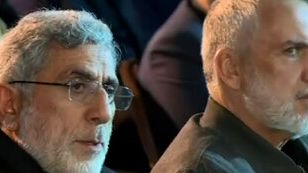The broadcast did not disclose Qa’ani’s whereabouts over the past two weeks, but it implied that he had returned to Tehran with Nilforoushan’s body. Nilforoushan, who assumed responsibility for Lebanon after Mohammad Reza Zahedi’s death in an April attack on the Iranian consulate in Damascus, was killed alongside Nasrallah and other senior Hezbollah figures during the October 7 Israeli strike on Hezbollah’s command center in southern Beirut.
During Qa'ani's absence from public view rumors began to circulate that the commander of the Quds Force was also killed in an Israeli air strike while visiting Beirut. Then, reports alleged that he was arrested in Tehran on suspicions of being an Israeli mole. During this time, Iran’s government and the IRGC evaded any explanation about his whereabouts and his fate.
Qa’ani was last seen in public on October 1, two days after Hassan Nasrallah, the Secretary-General of Hezbollah, was killed in an Israeli airstrike on the group’s command center in Dahiya, southern Beirut. At that time, Qa’ani was reported to have visited Hezbollah's representative office in Tehran.
In the aftermath of multiple high-profile assassinations of Hezbollah's top leadership, fingers were pointed at a deep and pervasive Israeli infiltration within the organization or among Iranian officials.
Last week, Middle East Eye reported that Esmail Qa'ani, commander of Iran’s Quds Force, had been detained and was under interrogation as Tehran sought to uncover how Israel managed to penetrate Hezbollah, its key Lebanese ally, and execute the killings of its senior figures.
Sky News Arabia, citing Iranian sources, further alleged that Qa'ani had suffered a heart attack during questioning. According to the report, Iranian investigations were increasingly focused on his chief of staff, Ehsan Shafiqi, and his potential ties to Israel.
Media speculation suggested Qa'ani may have been present at a subsequent meeting with his designated successor, Hashem Safieddine, when another bombardment occurred on October 3. However, an advisor to the commander-in-chief of the Islamic Revolutionary Guard Corps (IRGC) dispelled these claims on Wednesday, asserting that Qa'ani was "in perfect health" and would soon be decorated with a military medal of honor by Supreme Leader Ali Khamenei.








